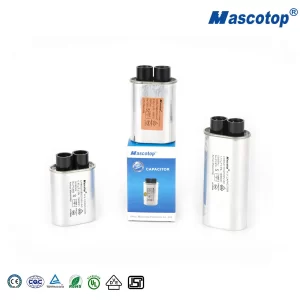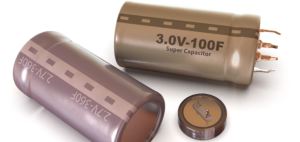
Capacitors are essential components in many electronic devices, and their optimal performance is crucial to the operation of these devices. Thus, testing capacitors is an important step in electronics maintenance and repair.

Table of Contents
Toggle
Capacitors are important components in electronic circuits due to their ability to store and release electrical energy and their versatility in performing a variety of functions.Capacitors play a crucial role in electronic circuits by performing a variety of functions, including:
Filtering Capacitors can be used to filter out unwanted frequencies or noise from the circuit.
Timing Capacitors can control the timing of signals in a circuit.
Energy storage Capacitors can store electrical energy and release it quickly when needed.
Coupling Capacitors can transfer AC signals from one circuit to another while blocking DC signals.
Power supply decoupling Capacitors can help to stabilize voltage in power supplies by smoothing out voltage ripple.
Testing capacitors is important for ensuring optimal performance because capacitors are essential components in many electronic devices and systems. Capacitors store and release electrical energy, and their performance can have a significant impact on the performance of the overall system.
Over time, capacitors can degrade, and their performance can deteriorate. Testing capacitors can help identify any issues with their performance, such as reduced capacitance or increased equivalent series resistance (ESR), which can lead to reduced efficiency, increased heat generation, and even failure of the system.
By testing capacitors, you can identify any potential issues before they become serious problems, and ensure that your electronic devices and systems are operating at their best.

Using faulty or degraded capacitors can lead to poor performance, reduced efficiency, noise generation, and even component failure. Therefore, testing capacitors is critical for ensuring optimal performance and longevity of electronic circuits.
Firstly, faulty or degraded capacitors may not be able to store and discharge electrical energy as intended, which can result in irregular electrical signals and cause the circuit to malfunction. This can lead to errors in the operation of the circuit or even complete failure of the electronic device.
Secondly, degraded capacitors can have higher equivalent series resistance (ESR) and equivalent series inductance (ESL), which can result in increased power dissipation, heat, and noise generation. This can reduce the efficiency of the circuit, cause it to run hotter, and introduce unwanted noise into the signal.
Thirdly, faulty or degraded capacitors can cause voltage fluctuations, which can damage other components in the circuit. For instance, voltage fluctuations can cause excessive stress on semiconductors, leading to reduced reliability and ultimately component failure.
Visual inspection
Capacitors should be checked visually for any physical damage, such as bulging, cracking, or leaking.
Capacitance testing
This can be done using a multimeter or specialized capacitance tester. The capacitor should be disconnected from the circuit and then tested for its capacitance value. If the measured value is significantly lower than the rated value, it may need to be replaced.
Dielectric absorption ratio testing
This is a more advanced test and requires specialized equipment. It involves measuring the time it takes for a capacitor to discharge to a certain percentage of its charged voltage. If the dielectric absorption ratio is high, it may indicate the capacitor has poor insulation.
ESR testing
ESR stands for Equivalent Series Resistance. By measuring the ESR of a capacitor, we can determine how much resistance is present within the capacitor. An ESR meter or specialized tester is required to perform this test. A high ESR may indicate that the capacitor is nearing the end of its usable life.
To learn more about capacitors and how they can benefit your electronic devices, visit our website at mtcapacitor.com.